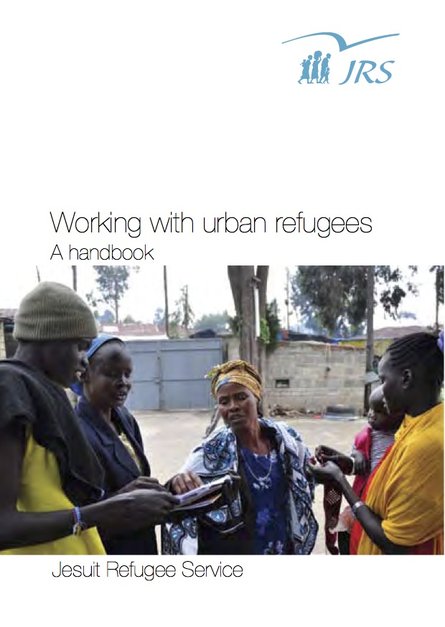
Scholars and practitioners alike have noted the rapid increase in the urbanisation of forced migration during the first decade of the twenty-first century. Today more than half the world’s refugees live in urban areas, as opposed to camps and rural settings. This percentage is likely to grow in the coming years in line with the global urbanisation trend affecting developing countries in particular.
As one would expect, the activities of JRS reflect this trend: many of its programmes — especially in Asia Paci!c, Europe, North America, the Middle East, Eastern and Southern Africa — are now located and implemented in major urban centres. What may come as a surprise is that, from its inception in 1980, the Jesuit Refugee Service has always hosted projects in urban areas.
Aware of all this, in 2010, the JRS International programmes officers and a group of regional directors proposed a process of reflection on JRS’ involvement with urban refugees that would allow for the sharing of experience and the identification of common elements. The first major plank of this process was a workshop held in Bangkok in March 2012. Each region sent up to three participants to the week-long meeting. Members of the International Office team, including the assistant international director, also participated in the meeting along with representatives from partner organisations and educational institutions who offered technical advice and observations. In all, 42 participants from 23 countries took part, representing every major JRS urban-based project.
This booklet gathers the shared fruits of this workshop so that all JRS staff working in urban settings will be able to benefit from the collective wisdom of the participants. The booklet begins with a list of guiding principles that underpin JRS work in urban settings. It is then divided into six sections, corresponding to the major challenges faced by urban refugees that were identi!ed in the workshop.
This publication is the first step in an ongoing communications process designed to help JRS, in keeping with its 2012-2015 Strategic Framework, to coordinate its expertise and resources in order to respond more effectively to the needs of urban refugees. It is meant to be a working document that is part of a growing body of resources and policies to help organisations in their work. The editors hope it will contribute to a continuing conversation on JRS’ response to refugees in urban settings.
Resource collections
- Evaluating humanitarian action
- UN Habitat - Urban Response Collection
- Urban Response - Urban Crisis Preparedness and Risk Reduction
- Urban Response Collection - Community Engagement and Social Cohesion
- Urban Response Collection - Economic Recovery
- Urban Response Collection - Environment and Climate Change
- Urban Response Collection - Housing, Land and Property
- Urban Response Collection - Urban Crisis Response, Recovery and Reconstruction
- Urban Response Collection - Urban Resilience